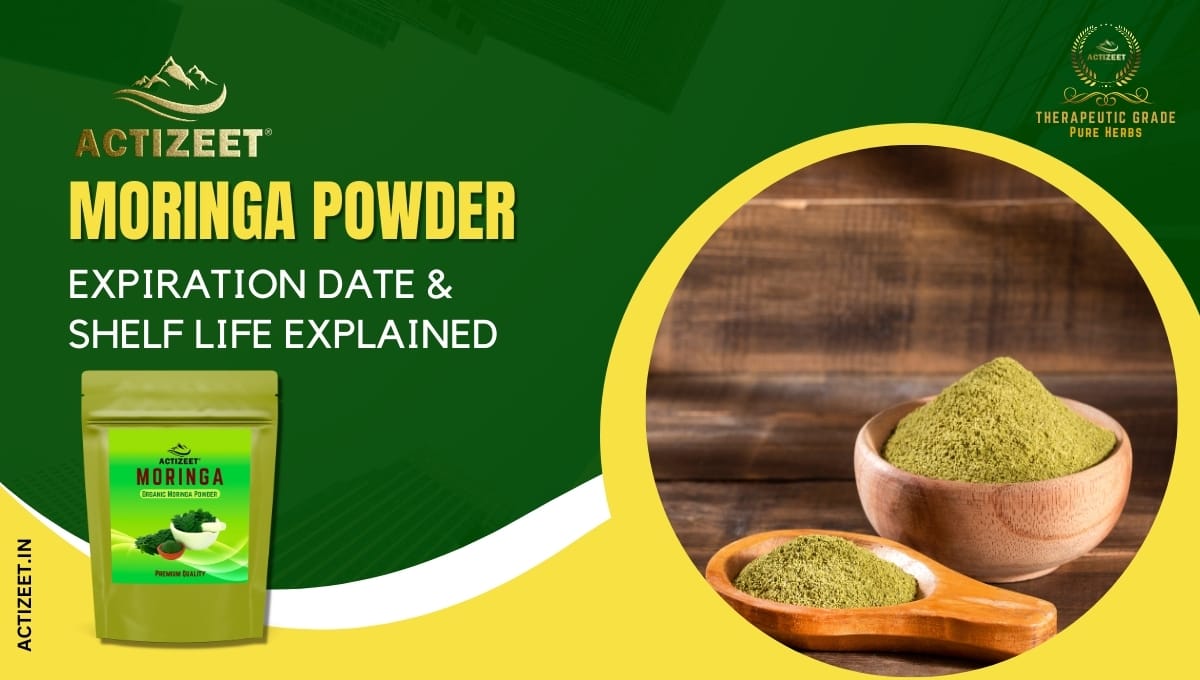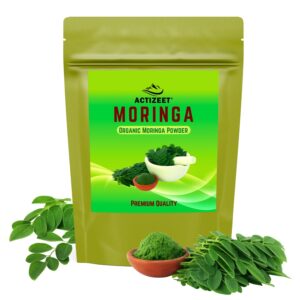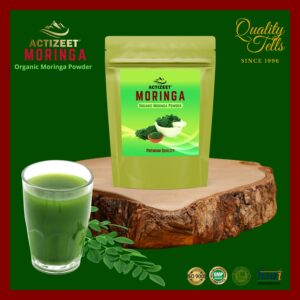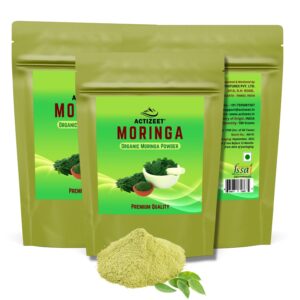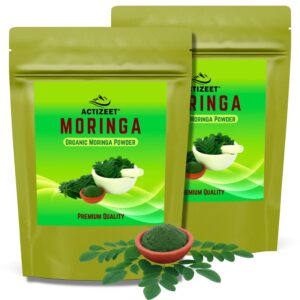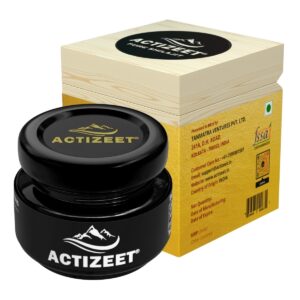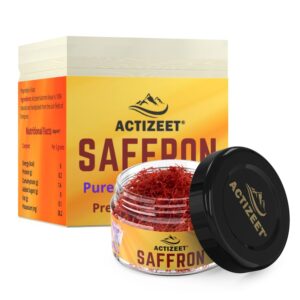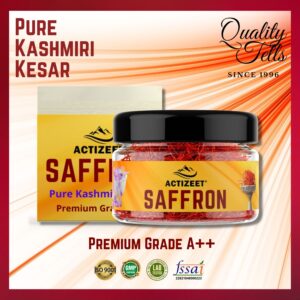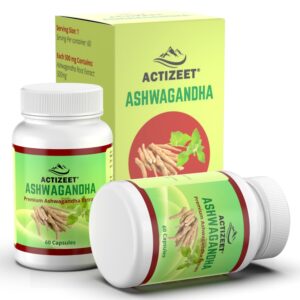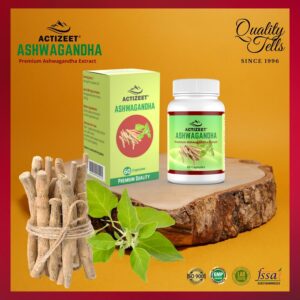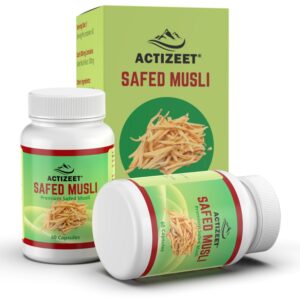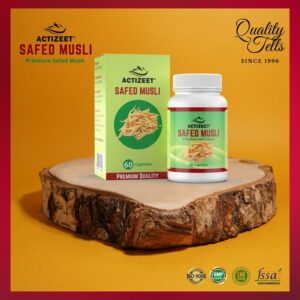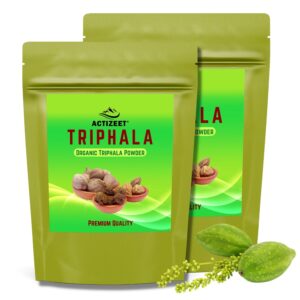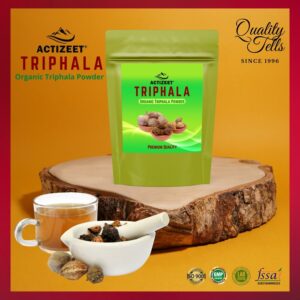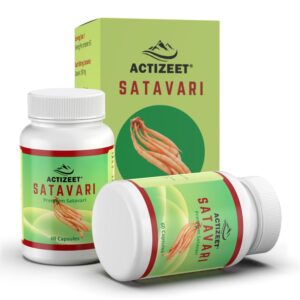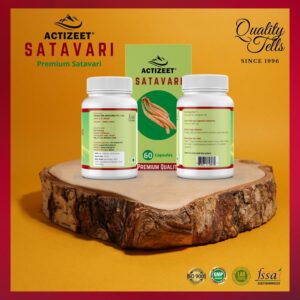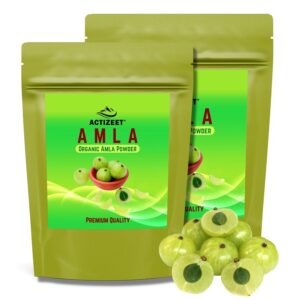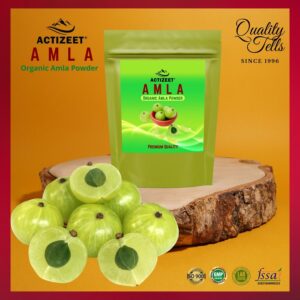Welcome, dear readers, to this enlightening article that delves into the intriguing world of moringa powder and its expiration. Prepare to embark on a journey of knowledge as we unravel the secrets surrounding this remarkable herbal supplement. Moringa powder, derived from the leaves of the mighty moringa tree (scientifically known as Moringa oleifera), has gained significant popularity for its exceptional nutritional benefits and versatile uses.
This vibrant green powder is a powerhouse of essential vitamins, minerals, antioxidants, and amino acids. From boosting immunity to supporting healthy digestion and promoting radiant skin, moringa powder has become revered as a natural health elixir.
However, amidst our zealous quest for wellness, it is crucial to comprehend the concept of expiration when it comes to this magical substance. Understanding how moringa powder ages and recognizing its signs of spoilage is paramount to ensuring that we reap its maximum benefits while safeguarding our well-being.
Table of Contents
ToggleOverview of Moringa Powder
Moringa powder is an extraordinary creation derived from carefully harvested moringa leaves. The moringa tree itself deserves applause for its resilience in challenging environments like Africa, Asia, and South America where it thrives gracefully despite arid conditions.
The leaves are plucked with utmost care to preserve their quality before undergoing a meticulous drying process. Once harvested and dried under controlled conditions to retain their potent nutrients, these emerald-green leaves are ground into a fine powder.
This transformation ensures that all the essential goodness locked within the leaves remains intact in an easily consumable form. It’s truly remarkable how nature provides such abundance!
Importance of Understanding Its Expiration
Now you may wonder why understanding the expiration of moringa powder matters at all! Well my dear readers, as with any natural product, moringa powder has a finite shelf life.
It is vital to be aware of this timeframe to ensure that you are consuming moringa at its peak efficacy. Imagine investing in a bag of vibrant green moringa powder, only to let it languish in your pantry for an extended period until it loses its potency and nutritional value.
By understanding the expiration of moringa powder, you can revel in its full potential and make the most out of this marvellous gift from nature. So let’s embark on this enlightening journey together and unlock the secrets behind the expiration of moringa powder!
What is Moringa Powder?
Moringa Plant and its Nutritional Value
Moringa powder is derived from the leaves of the moringa oleifera tree, also known as the “miracle tree” or “tree of life.” Native to tropical and subtropical regions, this tree has been recognized for centuries due to its remarkable health benefits. The moringa plant boasts an impressive array of nutrients, making it a popular choice for those seeking a natural supplement to enhance their well-being.
The moringa plant’s leaves are packed with essential vitamins and minerals that provide an array of benefits. They contain high levels of vitamins A, C, and E, as well as vital minerals like iron, calcium, potassium, and magnesium.
Additionally, the leaves are a significant source of protein and dietary fibre. These nutrients work synergistically to support various aspects of our overall health, from boosting immunity to promoting healthy digestion.
Process of Making Moringa Powder
The process involved in transforming fresh moringa leaves into fine powder requires careful handling to preserve their nutritional integrity. After harvesting mature moringa leaves from the tree, they are washed thoroughly to remove any dirt or impurities.
Then they are dried in a controlled environment with low humidity to prevent spoilage while retaining maximum nutrient content. Once fully dried, these leaves undergo grinding or milling processes until they form a fine powder consistency.
It is crucial during this step that no heat is applied since excessive heat can lead to nutrient degradation. The resulting vibrant green powder possesses a slightly earthy aroma along with a characteristic taste that hints at its rich nutritional profile.
To maintain the quality and extend the shelf life of moringa powder after processing, it is common practice to store it in air-tight containers away from direct sunlight or excessive moisture. This ensures that you can reap the benefits of this wonderful superfood for an extended period.
Does Moringa Powder Expire?
The Shelf Life of Moringa Powder
When it comes to the shelf life of moringa powder, understanding the factors that influence expiration is crucial. Moringa powder, just like any other natural product, has a limited lifespan. However, by properly storing it and taking certain precautions, you can make the most out of its nutritional benefits for an extended period.
Factors Affecting Shelf Life
Several factors play a role in determining how long your moringa powder stays fresh and potent. The most significant contributors to its shelf life are storage conditions and packaging.
Firstly, let’s delve into storage conditions. Moringa powder is sensitive to light, heat, and humidity.
Exposure to these elements can accelerate degradation and diminish its nutritional value. Ideally, you should keep your moringa powder in a cool, dry place away from direct sunlight.
Avoid storing it near sources of moisture like sinks or stovetops since humidity can lead to clumping and spoilage. Another factor influencing shelf life is packaging.
The quality of the packaging material directly affects how well your moringa powder retains its freshness over time. Opt for airtight containers or resealable bags that prevent moisture from seeping in while keeping oxygen out.
Typical Shelf Life Duration
Now that we’ve covered the essential factors affecting shelf life let’s discuss how long you can expect your moringa powder to remain viable. While there isn’t an exact expiration date for moringa powder, it typically maintains its potency for around one to two years from the date of production if stored correctly. However, it’s important to note that as time goes by, the nutritional content in moringa powder gradually declines due to natural oxidation processes.
Therefore, for maximum benefits and optimal taste, it’s advisable to consume moringa powder within the first year after purchasing it. By understanding the shelf life of moringa powder and taking appropriate measures to store and utilize it within a reasonable time frame, you can ensure that you’re reaping the full range of benefits this wonderful superfood has to offer.
Signs of Expiration in Moringa Powder
Visual cues (e.g., colour changes, presence of mould)
When examining moringa powder for signs of expiration, visual cues can provide valuable insights. One noticeable change to watch out for is a shift in colour. Fresh moringa powder typically has a vibrant green hue, indicating its high chlorophyll content.
However, as it ages and begins to expire, the colour can start to fade and become duller or even turn brownish. This discolouration is a clear indication that the powder has lost some of its freshness and nutritional value.
Another concerning visual sign is the presence of mould or any visible formation of clumps in the powder. Moringa powder that has been exposed to moisture or improper storage conditions may develop mould growth over time.
Mould not only alters the appearance but also poses health risks if consumed. Therefore, it’s crucial to carefully inspect your moringa powder for any signs of mould or clumping before using it.
Smell and taste indicators
Apart from visual cues, you can rely on your sense of smell and taste to determine if moringa powder has expired. Fresh moringa powder emits a pleasant aroma with earthy undertones. However, as it ages and loses its potency, this distinctive fragrance may diminish or even develop an off-putting odour resembling stale grass.
When it comes to taste, fresh moringa powder carries a mildly bitter yet slightly sweet flavour profile that enhances smoothies, teas, and various dishes. Expired moringa powder may exhibit an intensified bitterness or acquire an unpleasant rancid taste due to the natural oils within it breaking down over time.
Loss of potency and nutritional value over time
As with any organic product, moringa powder gradually loses its potency and nutritional value over time. The vibrant green colour of fresh moringa powder is a testament to its abundant chlorophyll content, which offers numerous health benefits.
However, as the powder ages, the chlorophyll degrades, diminishing its nutritional properties. Moreover, essential vitamins and minerals present in moringa powder may also start to degrade with time.
For example, vitamin C is known for its unstable nature when exposed to air and light. Therefore, it’s important to consume moringa powder within its recommended shelf life to benefit from its optimal nutritional value.
By paying attention to visual cues like colour changes and mould presence, as well as relying on your sense of smell and taste, you can determine if your moringa powder has expired. Additionally, understanding the gradual loss of potency and nutritional value over time helps emphasize the importance of using fresh moringa powder for maximum health benefits.
Proper Storage to Extend Shelf Life
Ideal storage conditions for moringa powder
To maximize the shelf life of your precious moringa powder, it is crucial to store it under ideal conditions. Firstly, ensure that your storage area maintains a cool and dry temperature. Moringa powder thrives best in a temperature range between 50 to 77 degrees Fahrenheit (10 to 25 degrees Celsius).
Extreme heat or cold can degrade its quality and nutritional value. Secondly, humidity is the enemy here.
Keep the moisture away from your moringa powder by storing it in a place with low humidity levels, ideally below 65%. Moisture can cause clumping or even spoilage, making your moringa less potent.
Suitable packaging options
Packaging plays a significant role in preserving the freshness and potency of moringa powder. Opt for airtight containers that prevent air from entering and moisture from seeping in.
Mason jars or well-sealed glass containers work wonders in keeping your moringa safe from degradation caused by exposure to air and humidity. Additionally, consider choosing opaque packaging as it helps shield the powder from light exposure that might result in nutrient loss over time.
Maximizing Freshness and Quality
Harvesting techniques for optimal freshness
For ultimate freshness, harvesting moringa leaves early in the day after any dew has evaporated proves beneficial. This ensures minimal moisture content which contributes to better drying and preservation of nutrients during processing. Gentle handpicking is recommended over mechanical harvesting as it minimizes damage to the leaves and retains their quality.
Processing methods that preserve nutrients
To preserve essential nutrients like vitamins, minerals, and antioxidants during processing, using low-temperature drying methods is key. Air drying or shade drying are excellent techniques that help prevent excessive heat exposure which can degrade the delicate nutrients in moringa. Additionally, grinding the leaves into a fine powder immediately after drying helps lock in their nutritional value and ensures a longer shelf life.
Utilizing Expired Moringa Powder
Potential risks associated with consuming expired powder
While it is not recommended to consume expired moringa powder, it typically poses minimal health risks. The main concern is its diminishing potency and loss of nutrients over time. However, if you notice any unusual odour, mould growth, or discolouration in the powder, it’s best to discard it to avoid potential adverse effects on your health.
Alternative uses for expired powder
Fear not if you find yourself with a supply of expired moringa powder! Instead of wasting it, consider repurposing it for other purposes. Expired moringa powder can be used as compost material due to its rich nutrient content.
It will contribute to enriching the soil and promoting healthy plant growth. Additionally, you can explore using expired moringa as a natural dye for art projects or even fabric colouring – let your creativity run wild!
Frequently Asked Questions about Moringa Powder Expiration
Can expired moringa powder be harmful?
Expired moringa powder is generally safe to consume as long as there are no visible signs of spoilage or abnormality. However, keep in mind that its potency and nutritional value may have significantly diminished over time.
How can I tell if my moringa powder has gone bad?
A few telltale signs that your moringa powder has gone bad include changes in colour (e.g., darkening), the presence of mould or an off-putting odour, and a stale taste. If you notice any of these indications, it’s best to discard the powder and obtain a fresh supply.
Conclusion
Proper storage and understanding of the expiration of moringa powder are vital to maintain its freshness, nutritional value, and overall quality. By storing it in ideal conditions—cool temperature, low humidity—and using airtight containers or opaque packaging, you can extend its shelf life significantly.
Optimal harvesting techniques and careful processing methods help retain maximum freshness and preserve essential nutrients. While expired moringa powder may not be harmful in most cases, it is advisable to discard it if there are visible signs of spoilage.
Remember, by treating your moringa powder with care and utilizing it responsibly, you can fully enjoy its benefits for a long time to come. So go ahead, savour that vibrant green goodness!
ACTIZEET Moringa Powder
-
Rated 4.85 out of 5
₹1,200.00Original price was: ₹1,200.00.₹900.00Current price is: ₹900.00. Incl. GST ADD TO CARTBuy Now -
Rated 4.84 out of 5
₹3,600.00Original price was: ₹3,600.00.₹2,100.00Current price is: ₹2,100.00. Incl. GST ADD TO CARTBuy Now -
Rated 4.80 out of 5
₹2,400.00Original price was: ₹2,400.00.₹1,600.00Current price is: ₹1,600.00. Incl. GST ADD TO CARTBuy Now
Related Products
-
Himalayan Shilajit, Pure shilajit, Shilajit, SHUDDH SURYA TAPI SHILAJIT
Rated 4.74 out of 5₹4,950.00Original price was: ₹4,950.00.₹3,950.00Current price is: ₹3,950.00. Incl. GST ADD TO CARTBuy Now -
Rated 4.86 out of 5
₹2,400.00Original price was: ₹2,400.00.₹1,600.00Current price is: ₹1,600.00. Incl. GST ADD TO CARTBuy Now -
Rated 4.82 out of 5
₹2,400.00Original price was: ₹2,400.00.₹1,600.00Current price is: ₹1,600.00. Incl. GST ADD TO CARTBuy Now -
Rated 4.84 out of 5
₹2,400.00Original price was: ₹2,400.00.₹1,600.00Current price is: ₹1,600.00. Incl. GST ADD TO CARTBuy Now
-
Rated 4.00 out of 5
₹2,400.00Original price was: ₹2,400.00.₹1,600.00Current price is: ₹1,600.00. Incl. GST ADD TO CARTBuy Now -
Rated 4.80 out of 5
₹2,400.00Original price was: ₹2,400.00.₹1,600.00Current price is: ₹1,600.00. Incl. GST ADD TO CARTBuy Now -
Rated 4.71 out of 5
₹2,400.00Original price was: ₹2,400.00.₹1,600.00Current price is: ₹1,600.00. Incl. GST ADD TO CARTBuy Now -
₹2,400.00Original price was: ₹2,400.00.₹1,600.00Current price is: ₹1,600.00. Incl. GST ADD TO CARTBuy Now
Related posts:
- Unlocking the Secrets: Moringa Powder Shelf Life Revealed
- Moringa Powder in Panaji (Goa)
- Moringa Powder in Gangtok (Sikkim)
- Moringa Powder in Imphal (Manipur)
- Moringa Powder in Kochi (Kerala)
- Moringa Powder in Aizawl (Mizoram)
- Moringa Powder in Agartala (Tripura)
- Moringa Powder in Srinagar (Kashmir)

